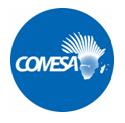Next Journalism:
southern africa literature
Call for Entries: The COMESA Media/ Print Journalism Awards 2011 (Eastern/ Southern Africa)
Christian AIDS Bureau for Southern Africa Essay/ Short Story Competition
Job Opening: Chief Editor for COMESA (nationals of Eastern and Southern Africa are invited to apply)
Call for Submissions: Young Women First! (The Umbrella Magazine, Southern Africa)
LSE Space for Thought Literary Festival Creative Writing Workshop With Lauri Kubuitsile (London)
Call for Papers: North Eastern Workshop on Southern Africa
Publication/ Research Funding from IFAS (Southern Africa)
Southern African Scholarship (MTN 2011/ Knights Foundation) at Rhodes University's School of Journalism and Media Studies
The IJP Southern African Journalists' Fellowship
